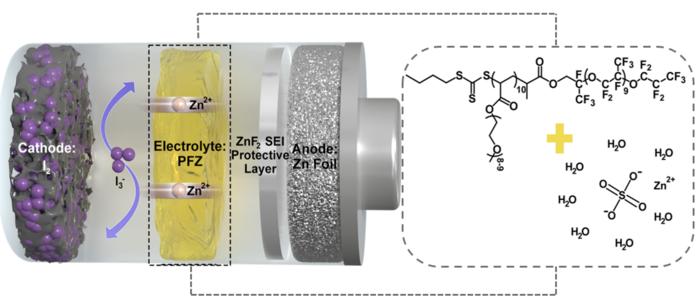Researchers in Australia have developed a new class of solid electrolytes for rechargeable aqueous zinc-iodine batteries, enabling longer life and high efficiency. Symmetrical cells using this electrolyte have demonstrated excellent cycling performance, maintaining stability for approximately 5,000 hours at room temperature, while all-solid ZnI2 batteries exhibit more than 7,000 cycles with capacity retention of more than 72.2%.
From pv magazine ESS news place
Rechargeable zinc iodine (ZnI2) batteries have received much attention due to their inherent advantages, including natural abundance, low cost, safety, and high theoretical capacity. However, their limited lifetime remains a major challenge for practical applications.
The thermodynamic instability of the zinc electrode in an aqueous electrolyte always leads to the release of hydrogen, which causes the battery to swell and ultimately fail. In addition, ZnI2 batteries are also susceptible to dendrite growth, which can damage the separator and cause battery failure.
Now researchers at the University of Queensland in Australia have developed a new class of fluorinated block copolymers as solid electrolytes for all-solid ZnI2 batteries with a longer lifespan.
Their results demonstrate the formation of a solid electrolyte interphase (SEI) layer on zinc, which promotes horizontal zinc growth, softens dendrite penetration, and extends battery life.
Symmetrical cells using this electrolyte exhibit excellent cycling performance and maintain stability for approximately 5,000 hours at room temperature, while ZnI in solid state2 batteries undergo more than 7,000 cycles with a capacity retention of more than 72.2%.
The complete ZnI2 battery has a Coulomb efficiency of almost 100% for more than 7,000 cycles (more than 10,000 hours).
Furthermore, the electrolyte exhibits excellent speed performance and delivers a reversible capacity of 79.8 mAh g-1 even at ultra-high current densities of 20 C.
To read further, visit our new ESS news place.
This content is copyrighted and may not be reused. If you would like to collaborate with us and reuse some of our content, please contact: editors@pv-magazine.com.


